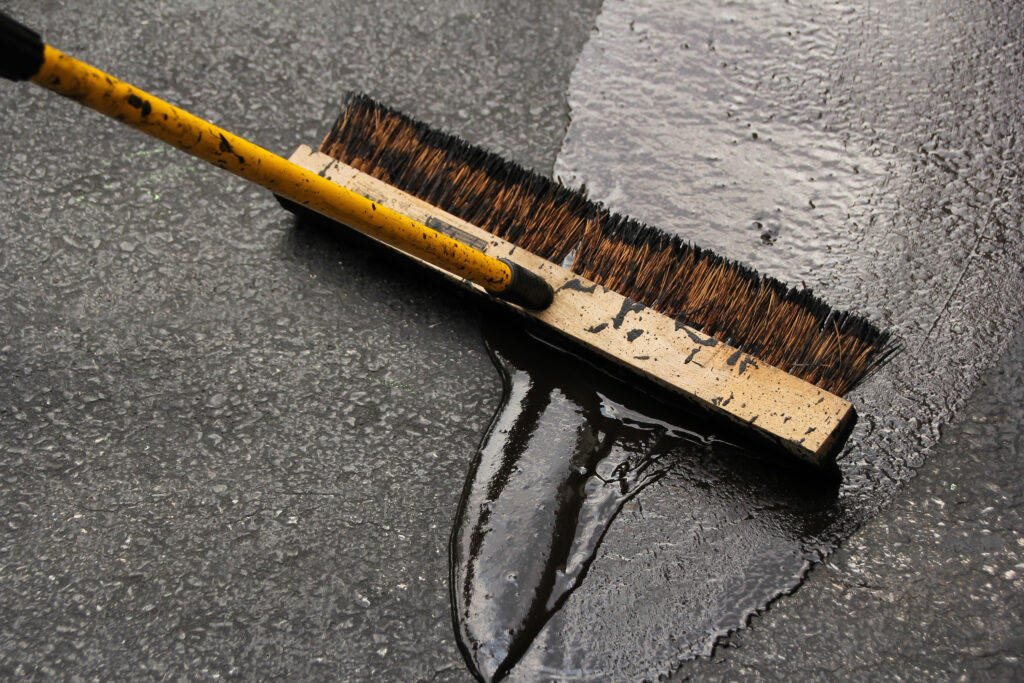
By Dixie Somers
Whether you are planning on resurfacing your driveway or installing a new walkway, following some do’s and don’ts can help ensure that your project goes smoothly and results in a durable and visually appealing surface. So before you start digging or pouring concrete, take a few minutes to read through our list of ten do’s and don’ts for a good paving project. Your future self (and your wallet) will thank you!
Do’s:
Hire Professionals
Paving is not a DIY task and should always be done by professionals with experience and proper equipment. Trying to do it yourself or hiring inexperienced contractors can result in a subpar job and potential safety hazards. Always make sure to hire reputable and licensed contractors for your paving project.
Plan and Research
Before starting any paving project, you need to plan and do your research. This includes understanding the local climate, soil conditions and any regulations or permits that may be required for your specific project. Don’t forget to research asphalt sales, as well as the materials and techniques that will be best suited for your project to ensure a long-lasting and aesthetically-pleasing result.
Prepare the Site
The key to a successful paving project is having a well-prepared base. This includes clearing the area of any debris, compacting the soil and adding a layer of gravel or sand for stability. Take the time to properly prep the site before laying any materials for a smooth and long-lasting surface.
To ensure that your site is ready for paving, don’t forget to check the soil moisture and compaction levels. This can be done by conducting a simple test with a penetrometer or hiring a professional to do it for you. Additionally, make sure that all necessary utilities have been marked before proceeding with the project.
Budget Wisely
Paving projects can be costly, so be sure to budget wisely. Take into account all the necessary materials, labor costs and potential unexpected expenses before starting your project. It may be tempting to cut corners to save money, but investing in quality materials and proper installation will save you in the long run.
Regularly Maintain It
Proper maintenance is key to preserving the life and appearance of your paved surface. Regular cleaning, sealing and repairs as needed will help extend its lifespan. Neglecting regular maintenance for your asphalt can lead to cracks, potholes and deterioration of the surface. This not only impacts the visual appeal of your pavement but also compromises its structural integrity. As a result, you may end up spending more money on costly repairs or even having to completely redo the paving project sooner than expected.
Don’ts:
Cut Corners on Materials
It can be tempting to save money by choosing cheaper materials, but this can end up costing more in the long run. Invest in quality materials that are suitable for your specific project to ensure a longer-lasting surface. Cutting corners on materials can result in frequent repairs and replacements, ultimately costing more money.
Ignore Drainage
Proper drainage is crucial for any paving project, as it helps prevent water damage and prolongs the life of your surface. Make sure to plan for proper drainage during the initial planning stages. Neglecting drainage can result in water pooling and causing damage to your paved surface. This is especially important for areas with heavy rainfall or high water tables.
Rush Through Installation
Paving projects require patience and attention to detail. Rushing through installation can result in uneven surfaces, cracks and other issues that will require costly repairs in the future. Take the time to properly install your materials for a smooth and durable surface.
The time it takes to lay asphalt varies depending on the size and complexity of the project. On average, a standard driveway can take anywhere from 1-2 days to pave. Factors such as weather conditions, accessibility and preparation of the site can also impact the timeline. Be sure to discuss a realistic timeline with your paving contractor before starting the project to ensure proper planning and scheduling. Rushing through the process can result in a lower quality outcome, which nobody wants.
Forget About Safety
Safety should always be a top priority during any paving project. This includes wearing proper protective gear, following safety protocols and ensuring the work area is secure. Don’t cut corners on safety measures to save time or money. Neglecting safety precautions can result in injuries, accidents or even legal consequences.
Ignore Permits and Regulations
Ignoring local regulations and permits can result in costly fines and delays in your paving project. Make sure to research and obtain any necessary permits before starting your project. This will not only save you from potential legal consequences but also ensure that your project meets safety standards. Different areas may have different regulations and permits required for paving projects. Be sure to check with your local government or planning department before starting any paving project.
This is especially true if you are making any major changes to your property’s exterior, such as widening a driveway or adding a new walkway. Obtaining the necessary permits will ensure that your project adheres to zoning and safety regulations, protecting both yourself and the community.
By following these do’s and don’ts for a good paving project, you can save time, money and headaches in the long run. Remember to plan ahead, hire professionals and prioritize proper materials and maintenance for a successful outcome. Happy paving!
Dixie Somers is a freelance writer who loves to write for business, health and women’s interests. She lives in Arizona with her husband and three beautiful daughters.



